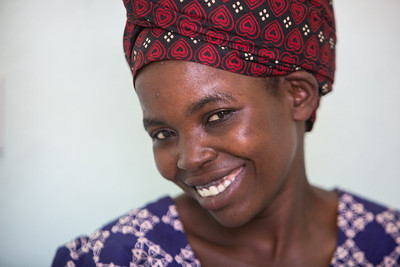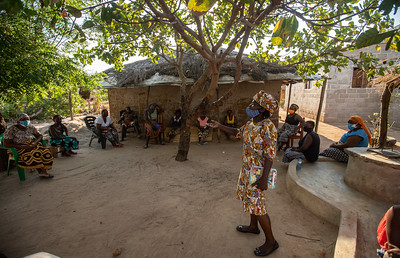Obstetric Fistula: Leaving No Survivor Behind
By: Bérangère Boëll, Resident Representative, UNFPA Mozambique
article first published in Jornal Noticias on May 23
Of all the things obstetric fistula can take from you, the most painful is your own child. Equally, this life-altering yet preventable childbirth injury can also take away your dignity, health, well-being, and your ability to work and be a part of society. Likely, you have never heard of it. But it cannot be ignored.
Obstetric fistula is a hole between the birth canal and bladder or rectum, which results in women leaking urine and/or feces uncontrollably. The hole is caused by obstructed labor, where a woman undergoes days of difficult labor, worsened when she cannot afford nor access timely medical support for emergency obstetric care or a Caesarean section.
It is estimated that 500,000 women live with obstetric fistula globally; in Mozambique, it is estimated that there are 2,500 new cases a year.

many years of suffering ©UNFPAMozambique
Behind these statistics are brave women, like Beatriz from Zambezia province in Mozambique, who endured labor at home for days before going to the hospital. She developed an obstetric fistula and spent years living in the shadows, defined by physical and emotional trauma.
Obstetric fistula most commonly happens in the developing world among the most marginalized women and girls. For these women, pregnancy and childbirth can become a death sentence. Global statistics show that 90% of pregnancies in which the woman develops fistula result in stillbirth.
The good news is that this is entirely preventable and in many cases, reversible. Fistula repair surgeries take place throughout Mozambique, but they are just one step of the equation.
Before surgeries can even happen, activists and health care workers are essential in locating women and girls, helping to identify their symptoms, and seek medical care. While the surgery begins to heal the woman physically, as important is helping survivors to reintegrate into society, overcome emotional trauma, and work their way out of poverty through employment.

radio host of community radio in Zambezia province in northern
Mozambique ©UNFPAMozambique
In Mozambique, the average cost of treatment is $268 - an attainable price if we consider the impact this reconstructive surgery will have on a woman’s quality of life. However, equal investment is needed in a skilled workforce, medical equipment, and community activists who work tirelessly to educate individuals and de-stigmatize the issue.
With the support of life-saving surgery, Beatriz is a new woman. She has rejoined her church choir and manages a shop outside her home, using her income to manage a household farm. She is also an activist, bravely stepping out as the face of a fistula survivor and helping women seek the support she was once fortunate to receive.
Over the last few years, UNFPA Mozambique - through the support of donors such as the Government of Canada - has supported more than 3,000 women to receive repair surgery, alongside training health providers, running community awareness campaigns, and helping survivors reintegrate into the workforce.
Let’s remember that fistula is not just a development or public health issue, but an issue of human rights. Every woman and girl has the right to a healthy and dignified life.
Let’s continue the momentum and work together to end obstetric fistula once and for all.


